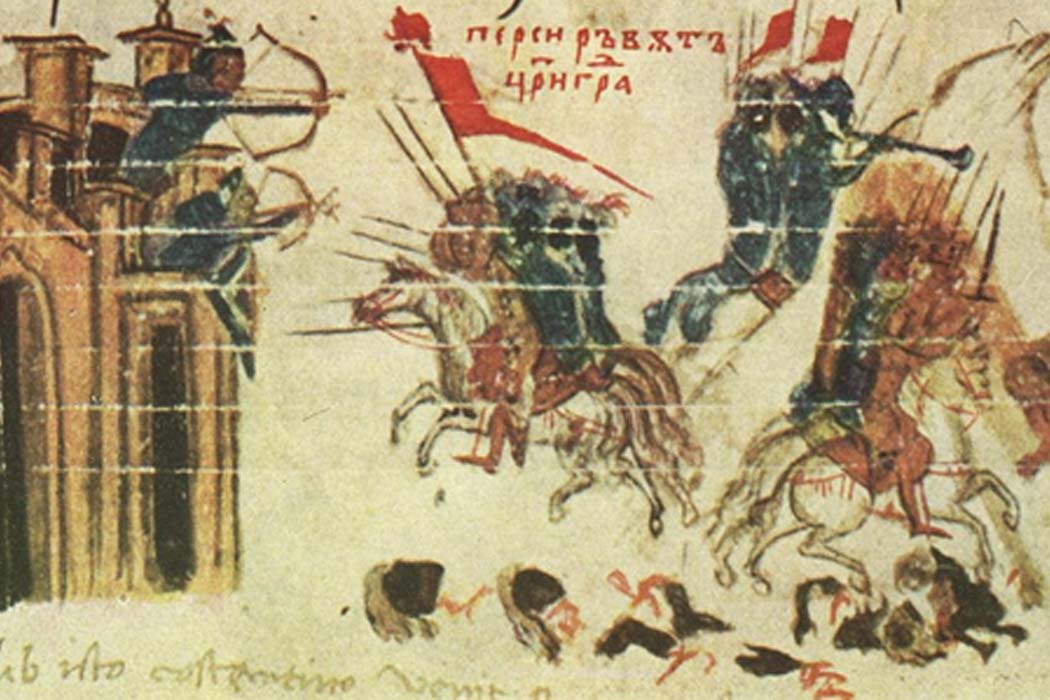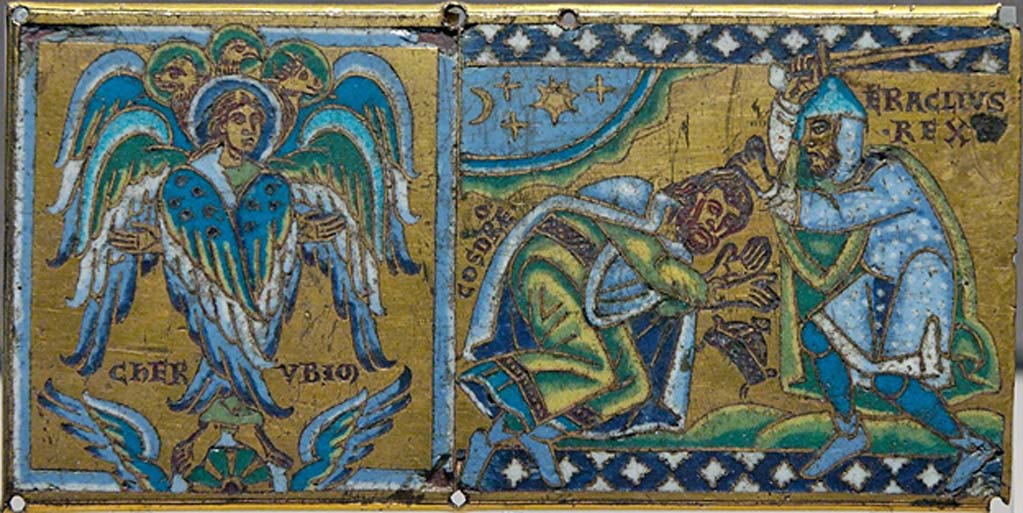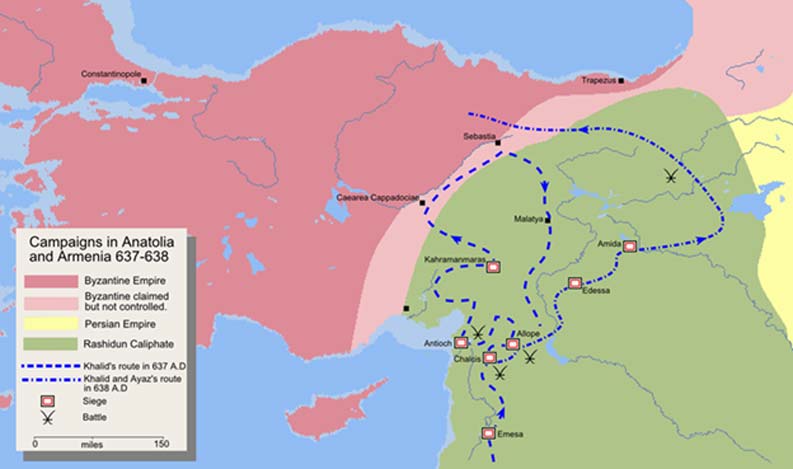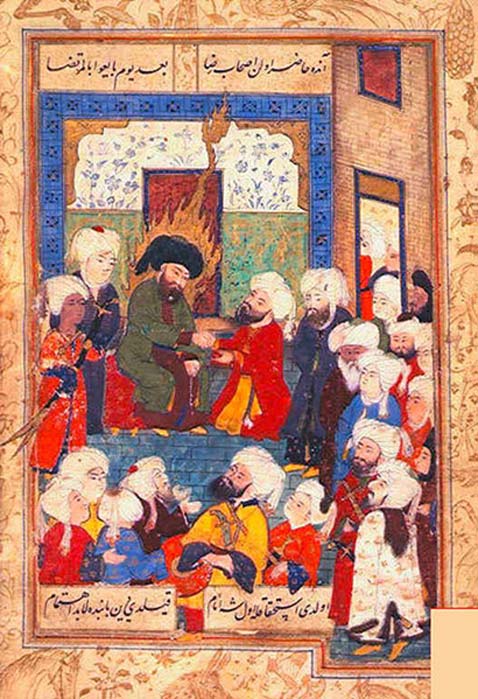
Was the First Islamic Siege of Constantinople (674 – 678 AD) a Historical Misnomer?
In 636 AD, the armies of Islam under the Rashidun Caliphate, defeated the forces of the Byzantine Empire at the Battle of Yarmouk (near the Yarmouk River, along what today are the borders of Syria–Jordan and Syria–Israel, east of the Sea of Galilee). Realizing that the situation was dire, an order was issued by Heraclius, Emperor of Constantinople, for the remaining forces to immediately evacuate the Levant and reestablish themselves in Asia Minor. With the Byzantine armies out of the way in Asia Minor, the path lay open for the forces of the Rashidun Caliphate to sweep down throughout the Levant and eventually into Egypt. Muawiyah, Governor of the Levant at the time, had the foresight to build a Muslim navy, that defeated the Byzantine’s fleet at the Battle of the Masts in 655 AD. Their confidence boosted, did the Muslim armies proceed to actually besiege Constantinople?

Cherub and Byzantine Emperor Heraclius receiving the submission of the Sassanid king Khosrau II (Public Domain)
With the Middle East under Islamic reign, Muawiyah, relentlessly send raiders into the Byzantine territory of Asia Minor. While his armies raided and taunted the Byzantine defenses, Muawiyah’s navy took to the Mediterranean Sea, conquered the island of Cyprus and then set its target at the islands of Aegean Sea. As the sea raids were successful, their next true test was a full scale naval battle. The Battle of Phoenix / Battle of the Masts off the Lycian coast in 655 AD brought the Muslim navy their final victory over the Byzantines. (Constantine the Bearded was by then Emperor of Constantinople).

The Rashidun Caliphate Campaigns 637 – 638 AD (CC BY-SA 3.0)
Murder of a Caliph Interrupts the Byzantine Wars
The murder of Caliph Uthman interrupted the Byzantine raids and sparked the First Muslim Civil War. Distracted, Muawiyah, knowing that he would have to divert his forces and concentrate them elsewhere, negotiated a truce with the Byzantine emperor in 659 AD and agreed to pay tribute to the Empire. However as soon as the Muslim civil war ended in 661 AD, Muawiyah, became the first Umayyad caliph and he resumed his attacks, penetrating deep into the Byzantine lands of Asia Minor. While some factions of the Muslim armies raided and retreated, other contingents retreated to winter, west of the Taurus mountain range. The threat of a Muslim army on Byzantine soil disrupted the flow of Byzantine trade, which only fired the Muslim armies’ zeal to expand their religious empire.

Swearing of allegiance to Ali at Kufah in the 7th century following the murder of 'Uthman, from a late-16th century Turkish manuscript on the martyrdom of Husayn (Public Domain)
According to the 8th century Byzantine chronicler Theophanes the Confessor: “In the month of March a bow appeared in the sky and all the men shuddered and said it was the end of the world.” In the Spring of 669 AD, the Muslim army under command of Fadhala ibn 'Ubayd had advanced as far as Chalcedon, in the Byzantine province of Bithynia. (Constantine IV was by now Emperor of Constantinople).





